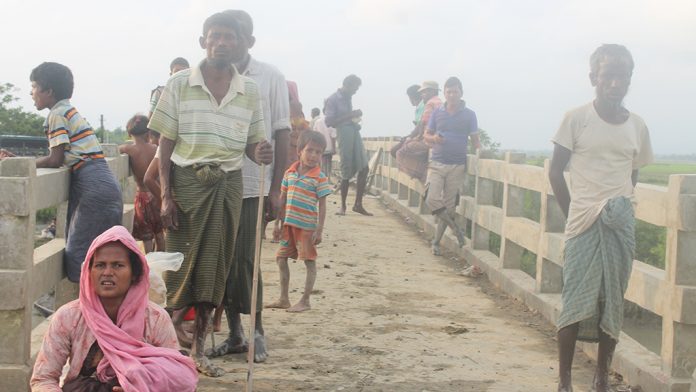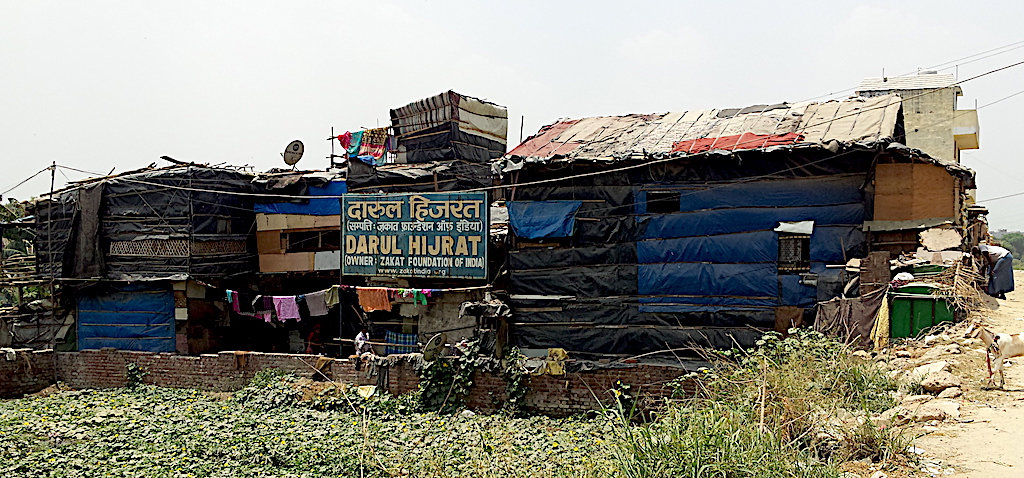
By Badre Alam and Sanjay Kumar
Rohingya’s Muslim Refugees after ethnic violence came to settle in many cities in India like Jaipur, Kolkata, Haryana, Delhi and Jammu etc. in around 2012. They settled in ghetto in sub human conditions with barely any facility.
The current political dispensation led by BJP has reservations while dealing with the ‘Muslim Refugee question’. It is notable that non-Muslim and Muslim Refugees, who are coming from Bangladesh, Pakistan, Srilanka, Afghanistan and other countries have been given more favourable conditions and even in some cases offered citizenship by the BJP Government. However, Rohingyas’s Muslim Refugees who have come from Myanmar and are living in Delhi since 2012, have been denied basic human rights and humanitarian help.
Minister of state for home affairs, Kiren Rijiju has stated that our Government’s stance of deporting Rohingaya Refugees is best possible option. ‘I deplore current measures in India to deport Rohingyas at a time of such violence against them in country’, he added, ( Hindustan Times, September 12, 2017.p-6). It is important to note that Indian state is not a signatory of UN Convention of Refugee status, 1951. However, one could argue that State cannot deny the right to life and personal liberty of the non-citizen of India under the Fundamental rights (Art-21), which is enshrined in the Indian Constitution.
It is sad to note that his statement on the responsibility of government is not guided and by’ humanitarian perspective’ vis-à-vis the Rohingnas refugee problems. In this context, Hindustan Times, has reported on 11September 11, 2017,p-2: “The Minister of State for Home affair reportedly said that because India is not signatory to the Refugee Convention. The country can dispense with International law on the matter, together with basic human compassion, while noting that 40 thousand Rohingyas settled in India”.
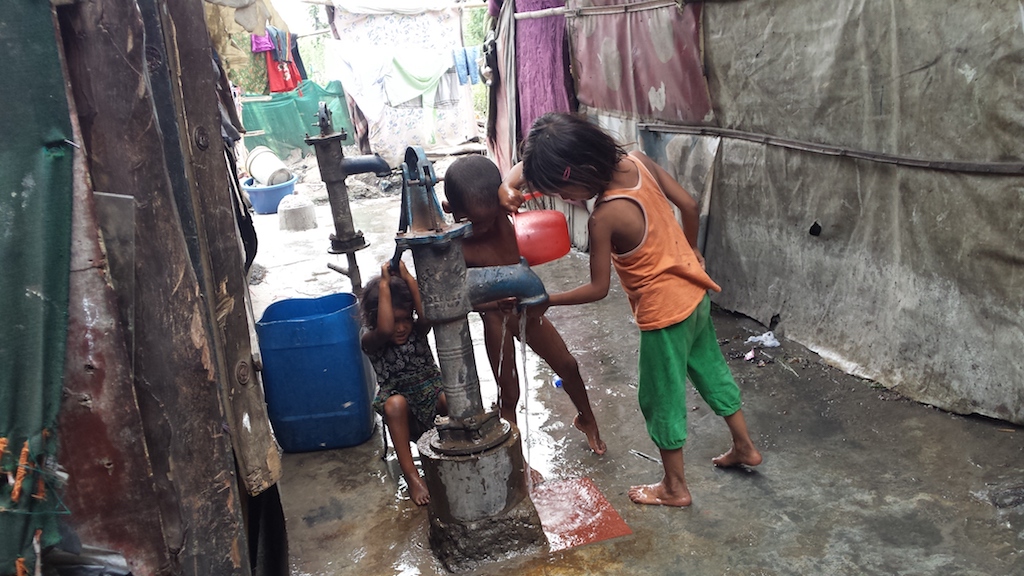
Howvever, owing to violent situation, one can morally put the argument that it is the moral obligation of the Indian government to provide basic needs on humanitarian grounds rather than sending the Refugees back to their homeland. UN High Commission for Refugees has issued already Cards to the most of the Rohingya Muslims. In-spite of having legal cards issued by UNHCR, they are being suspected as “potential terrorist” .
Apart from right-wing communal forces, even the so-called “left-liberal” and mainstream Media, most of the Human rights organizations, and political parties from Left to Right have utterly ignored and undermined their problems and basic human rights such as health, education, and dignified human life as far as the Rohingyas Muslim Refugees are concerned. Some of the Left and Liberal forces have not accepted government stance for sending them back home but they have not given any substantial help to improve socio-economic conditions of these refugees. However, Muslims along with few section of progressive forces, civil society and students bodies have jointly organized protest demonstration and expressed solidarity with Rohingyas Refugees, across the country. Most of them have raised these important questions and urged the international community along with Muslim countries to put pressure on UN and Myanmar government for ending this culture of violence and ‘ethnic cleansing’ vis-a-vis innocent Rohingyas Muslim.
The point is stressed here that most of these Refugee families have already got UNHCR Cards but still cannot avail any kind of socio-economic assistance, being provided to them by other organization. It is surprising to note that International community barring, Human Rights Watch, Amnesty International, most of the State and Civil society, NGO’s, mainstream media etc.are unresponsive towards the problems of Rohingyas’s Muslims Refugees. In this respect, Human rights activists and civil society, Milli Tanzeem of India and International human rights committee and the commission have also requested to UN Secretary General for providing some humanitarins relief with immediate effect and put political pressure on the Myanmar state for restoring peace and normalcy.
In this respect, prominent social activist, Maria Alam has written a letter to the United Nation(UN) General Secretary along with the Chief Justice of India, and Prime Minister for not compelling Muslim Refuhees to send back homeland unless the situation gets normal. She has pointed out that if UN takes these Refugees problems seriously, it will send message that no country is above the law of the land.
However, it is positive to note that resistance and protests are going on across the country against the Myanmar government and particularly its brutal role of Military vis-a-vis innocent civilians of Rohingyas. In this context, Urdu Newspaper has (The Inqilab, september11,2017)covered widely and reported that Indian Muslims are very much dissatisfied with current political dispensation-led by BJP-RSS combined along with Myanmar government and its authoritarian military regime.
In this context, Rashtriya Ulema Council has also organized a protest demonstration at the Jantar Mantar, and put the demand with government of India for immediate intervention and further state that do not suppressed their voices of Rohingyas Refugees, says the Inqilab 11, 2017, p-2.
Besides, some Muslims have also demanded that all Muslims country must immediately end with relation (Myanmar) and called the Ambassadors back to its own country, writes The Inquilab.11, 2017, p-2. Moreover most of Ulemas(Religious scholars)and others in the famous place called Deoband have also observed protest, demonstration, expressed solidarity and demandedintervention of UN and urge the government of India for not deporting the refugees to their homeland as writes (the Inquilab, 11, 2017, p-7).
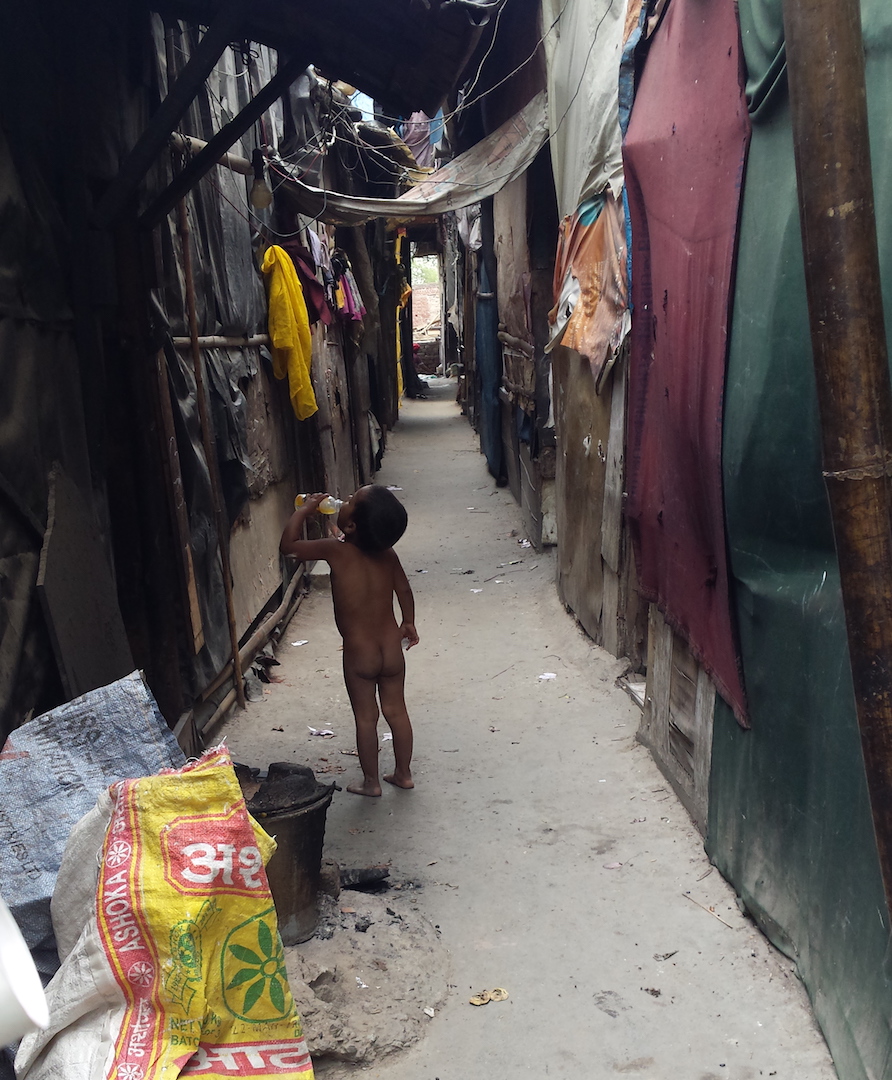
Response of Rohingya Muslims:
Husain Zohar, who is 17 years old from Rakhine State, came from a place called Buthidaung, and while Zohar said our conditions in the Myanmar was deeply pathetic and badly affected by the current political regime. However, in India our conditions are equally unsatisfactory but somehow better than Myanmar, here no body disturb our everyday life unnecessarily, he adds. Further, he outlined that genocide are still continue unabated in our home country. In this bad situation, how can anyone expect from us to go back to own country? However, if in the future situations in our country get improved and normalcy is fully restored, we will definitely prefer to back in our original homeland, Zohar share with us. Moreover, since 2012, he is living with father and currently helping him to run the small general store.
Mohammad Shakil, who is 24 years old from Rakhine State, also said that national and international Media, including Myanmar, had projected our image as the so-called ‘Terrorist’. As a matter fact, it is to be noted that nearly all refugees have got legal Cards issued by the UNHRC. We are so fearful and scared by the recent government of India’s planning to send us back to our native places. But how we can go to our home county if such atmosphere of genocide and violence still continue, said Shakil. We would prefer to die here (in India) but will not return back to our places, particularly in this dangerous and violent situation, he told.
Mohd Zafar, who is 26 years old from Rakhine State, also told that Government of Myanmar and particularly Military was so undemocratic that even our basic “human rights” and “Citizenship” have been forcefully taken away and compelled us to leave the country. Situation is so dangerous and tense even dead bodies were buried without proper religious ceremony. (It is often without Kafan) he added.
Tasleema,who is 32 years old women also from Rakhine State, said that we will remain here, and I am particularly not happy with the Indian government decision to send back us in our original places or homeland. She outlined one of the crucial facts that how it is possible for us, particularly women and girls to return back, in the situation where Army of Myanmar targeted women and girls, even sexually assault and often raped us in the brought daylight. And to be honest, no actions have been taken against the Army personnel, she added.
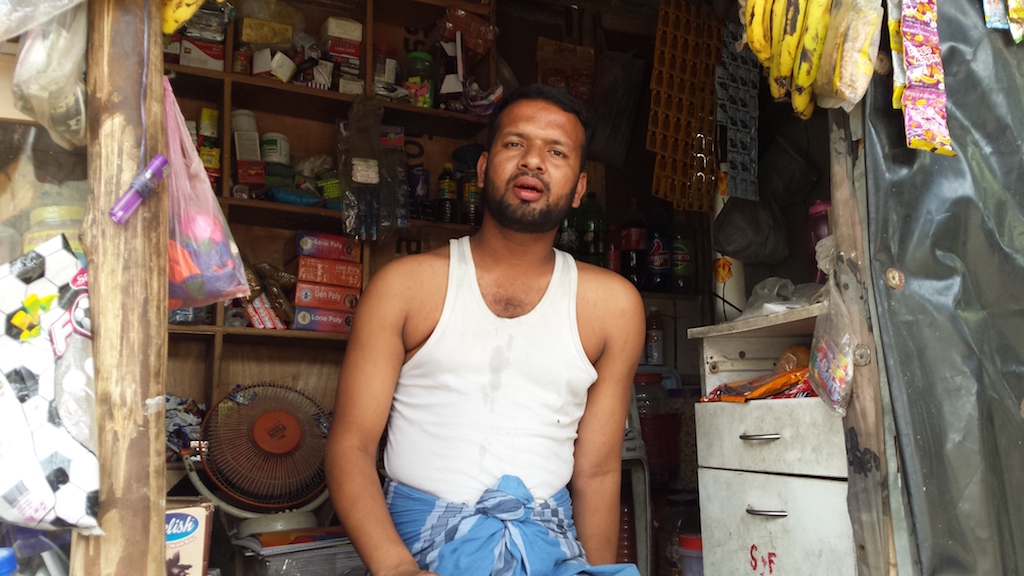
Interview: In a similar vein but somewhat different way Mohd Salim from Rakhine State, told that we were treated as a Refugees in our own country. After 2010 violent conflict took place, we were not permitted to visit our own cities, not allow performing the marriage ceremony. Moreover, State of Myanmar had taken our ‘Identity Cards”, not given government jobs, permission to visit and see State Capital, known as Rangoon and finally we were witnessed religious discrimination and social boycott, Salim said.
Interview: Mohd Haroon, who is 45 years old also from Rakhine State, run a small shop owner said that Indian peoples and government are very supportive in compared to other countries. However, Haroon has raised critical points, why Indian State maintaining ‘dual policy’ in terms of Refugees providing status. For him, other countries Refugees such as Bangladesh, Afghanistan, Pakistan, Tibet, Sirilanka etc, have already got some good facilities from Government of India on the humanitarian grounds.
(Badre Alam is a Research Scholar at Delhi University, Department Of Political Science, and Sanjay Kumar is Post- Doctoral Fellow at JNU.)


